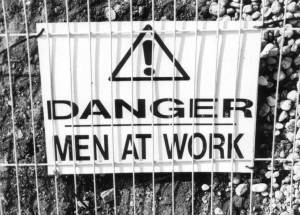JAMES
I am currently playing the new Batman game, Arkham City. As ever, the Dark Knight is stoically fighting against a seemingly endless population of hardened criminals, deranged psychopaths and violent mass murderers whose deviancy and barbarism is so beyond the pale that ideals of redemption or rehabilitation are naïve and impossible; the only appropriate course of action being to kick some ass.
Despite this futility, our noble and just hero refrains from killing these inevitably recidivist miscreants and is thus forever destined to fight them, beat them, lock them up and wait for them to escape again, triggering the whole cycle once more.
In the game, as in just about every Batman game, movie, comic etc, Batman is described as, among other things, a genius, expert scientist, prodigious martial artist and most importantly, an ‘expert in all aspects of criminology’. Now, being a criminologist myself (albeit a currently unemployed one), I admittedly find it hard to identify a single point of commonality between Batman and myself (aside from a penchant for capes).
 The word ‘criminology’ in this sense is used to suggest individual criminal profiling, in other words, understanding the criminal mind, ‘know thine enemy’ and all that. This description of criminology is about as accurate as saying Arnie’s portrayal of Mr Freeze was well-rounded, convincing and deserving of an Oscar.
The word ‘criminology’ in this sense is used to suggest individual criminal profiling, in other words, understanding the criminal mind, ‘know thine enemy’ and all that. This description of criminology is about as accurate as saying Arnie’s portrayal of Mr Freeze was well-rounded, convincing and deserving of an Oscar.
In actual fact criminologists are generally derisive of attempts to pathologise criminality in this way. Further, criminologists would pretty much condemn most of the things that Batman does in the name of justice. So for the sake of clarity and the reputation of criminologists everywhere, I’ve decided to compile a list of 10 things that Batman would do if he really were a criminologist:
1. Firstly, he would recognise that vigilante forms of ‘justice’ undermine the proper functioning of the legal system and the collective notion of ‘justice’ itself. Further, vigilantism is socially harmful, targeting certain groups of (perceived) offenders unfairly, resulting in informal, unregulated and draconian sentences or outcomes. Basically, he’d stop being Batman.
2. He would support and fund (remember he’s a billionaire) criminal justice reform aimed at focusing less on policing and the punishment of street-level crime, instead turning regulatory and punitive focus to the illicit actions of corporations and governments, the effects of which are many times as harmful as small-scale crime.
3. He would regulate the media’s (he either does or could own most major media institutions) representation of crime. Rates of almost all types of crime have been steadily decreasing over the last three decades, however fear of crime has seen massive increases. Studies show the majority of the public believes that there is currently more crime occurring than ever before.
4. He would focus on crime prevention rather than relying on reactionary enforcement. Victor Fries (AKA Mr. Freeze) only commits crime in order to fund the research needed to save his terminally ill wife. As a benefactor of Gotham University, Bruce Wayne could easily fund this research indefinitely, thus removing Mr Freeze’s motivation to commit criminal acts.
5. Batman would close (or at least reform and rein in) Arkham Asylum. If Batman were a criminologist he would know that prisons don’t work; they are hostile and criminogenic environments that actually create more ‘hardened’ or ‘lifetime’ criminals. Further, the vast majority of people that enter prison are not serving life sentences and thus will re-enter the community at some stage. People with criminal records often become severely marginalised in terms of housing, employment, and welfare (especially in the U.S.). This creates a vicious cycle of recidivism, imprisonment and (further) marginalisation.
6. He would support and fund (remember, he’s a fucking billionaire) reform for the education, welfare and healthcare systems in the U.S., the current configurations of which are major contributors to levels of criminality within communities.
7. He would rethink his traditionalist and ‘classical’ views of retributive justice and seek more conciliatory and constructive modes of justice. Who knows, maybe all the Joker needs to go legit are some IT skills from a computer course, Two-Face could do pro bono legal work for death-row inmates and Poison Ivy could get involved in environmental lobby groups. Better than prison.
8. Batman would campaign for drug law reform (as both Bruce Wayne and his symbolic alter ego) such as introducing needle exchange programs (which are currently illegal in the U.S.), especially in prisons (which are currently illegal in Australia), seek to decriminalise many illicit drugs such as cannabis and ecstasy and remove racial inequality from current drug laws.
9. Batman would be well read in Durkheim, Foucault and Garland. Thus he would recognise that crime (and its associated phenomena) is an inevitable aspect of society and in fact plays an important symbolic and social function. Batman’s actions would adhere to principles of harm minimisation, rather than punitive and draconian ideals of punishment, retribution and internal or ‘pathological’ criminality.
10. Finally, Batman would join the Occupy Wall Street movement, recognising that the inegalitarian potential of late-modern capitalism creates intractable conditions of poverty and systemic violence which in turn compound criminality in impoverished communities resulting in widespread disaffection and anomie. Or, if it is more his style, he would beat the shit out of Wall Street stockbrokers, corporate CEOs and the Tea Party. Further he would be doing what this guy does, protecting innocent protesters from invidious police brutality.














